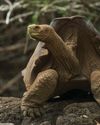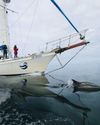Campaigners have taken out a Judicial Review against Natural England, which questions the processes that the public body followed in relation to the badger cull.

The campaigners who are taking Natural England to court believe it has failed to follow rules laid down under both European and British legislation. Court scrutiny will also examine what some professional ecologists describe as a “culture of secrecy” within the organisation that forced them to take t matter to the Information Commissioner (ICO) and a regulatory court in order for certain evidence to be released.
Documentation was originally supplied in a heavily redacted form. Before a hearing with the ICO tribunal where he won access to the detail, ecologist Tom Langton said, “For all the use these documents are, the blacked-out assessments frankly might as well have been carried out in complete secrecy.”
In order for NE to grant licences for badger culling, it had to carry out Habitats Regulations Assessments, o HRAs, in any areas where proposed activity might impact on wildlife in a protected area such as a Site of Special Scientific Interest (SSSI), Special Area of Conservation (SAC), or Special Protection Area (SPA).
From the autumn of last year Langt who is heading a move to make NE’s processes more transparent, has been working with Dominic Woodfield, who is the managing director of an ecological consultancy called Bioscan. He has carried out thousands of impact assessments, including HRAs, on behalf of commercial clients. “I wasn’t involved in the anti-badger culling campaign at the time,” he recalls, “other than having a general misgiving about it not being run on scientific principles.”
Langton asked Woodfield to help because of his HRA experience, and they set out to discover what NE had done in its HRAs to assess the possible side effects of badger culling.
This story is from the July 2018 edition of BBC Wildlife.
Start your 7-day Magzter GOLD free trial to access thousands of curated premium stories, and 9,000+ magazines and newspapers.
Already a subscriber ? Sign In
This story is from the July 2018 edition of BBC Wildlife.
Start your 7-day Magzter GOLD free trial to access thousands of curated premium stories, and 9,000+ magazines and newspapers.
Already a subscriber? Sign In

Metamorphosis: a life-changing event
WITH EVOLUTIONARY BIOLOGIST JV CHAMARY

Can your really offset emissions?
Planning an overseas wildlife-watching trip entails facing some inconvenient truths

New series for BBC One: Asia
Settle in this autumn for a new natural-history extravaganza on BBC One and iPlayer: the longawaited Asia, presented by Sir David Attenborough.

Loss of Antarctic sea ice could impact seabird food supply
Albatrosses and petrels may be forced to fly further to feed

Tarsiers in trouble
Urgent action is needed to ensure survival of the Yoda-like primate

SNAP-CHAT
Chien Lee on shrew loos, rogue drones and being rained out of bed

VISIONS OF NATURE
The winners of the Wildlife Artist of the Year competition 2024, from David Shepherd Wildlife Foundation

RETURN OF THE GIANTS
After two decades of preparations, the island of Floreana in the Galápagos is ready to welcome back an iconic tortoise

10 HOLIDAYS FOR CONSERVATION
Our round-up of the best ecotourism projects around the world. Here's how to help wildlife while having a blast!

See it, save it?
Wildlife tourism can be a powerful ally in protecting nature - but it can also harm it. We weigh up the pros and cons.